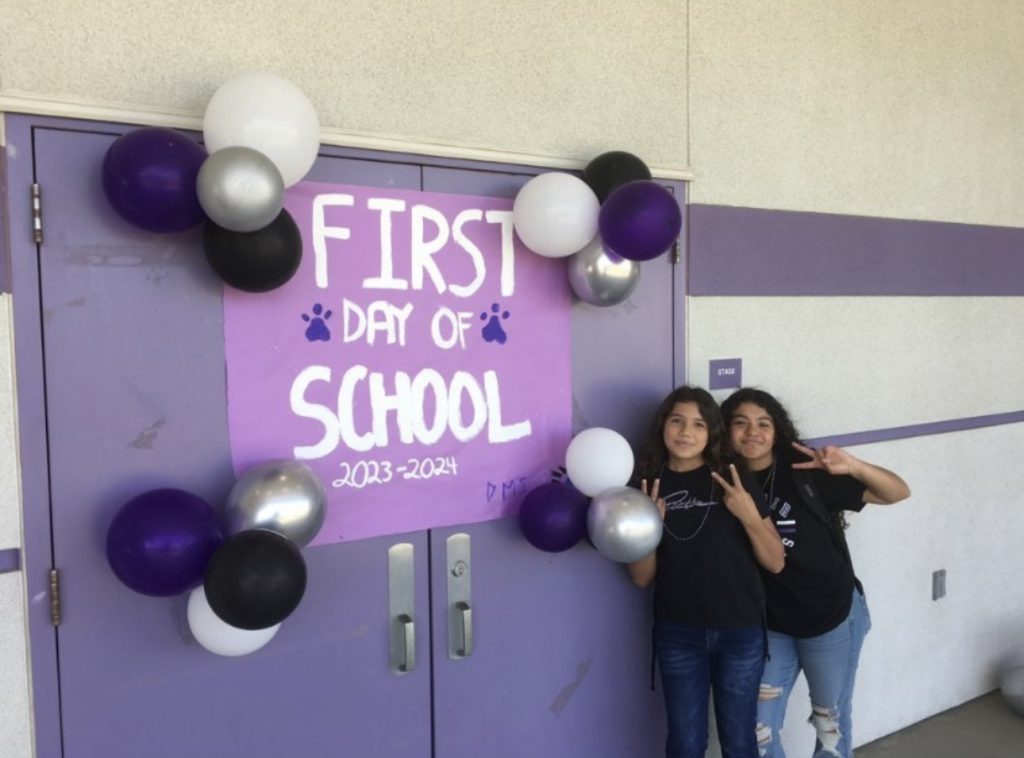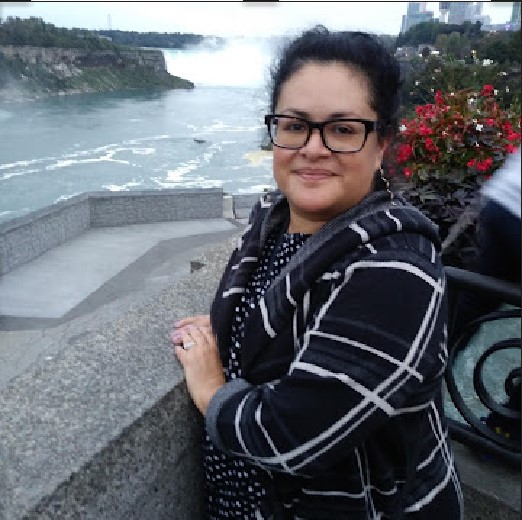
Classes resumed this week in the Denair Unified School District and it’s hard to tell who was more excited – the students who returned to the four campuses for the first time since May or the teachers and staff who will work closely with them for the next 10 months.
“The campuses were buzzing with excitement, but remarkably calm,” was how Superintendent Terry Metzger described the mood Wednesday. “There just was a chill vibe.”
One parent told Denair Elementary Charter Academy Principal Laura Cardenas that her children had been counting down the days until school began, so eager were they to see their friends and meet their new teachers.
That feeling was shared across all grade levels. There were lots of hugs and smiles, and even a few tears, especially from parents of the youngest students just starting their formal educations at DECA.
“I am thrilled to begin this new journey alongside our students,” said Cardenas. “Being a witness to their growth, both academically and socially, is a privilege. Every school year is a fresh canvas, and I’m eager to contribute to their learning and achievements.”
DECA has the district’s largest enrollment, with 563 students spanning transitional kindergarten to fifth grade.
At Denair High, which has 281 students, the members of the Leadership class hosted something they dubbed “Donuts and Directions.” Older students welcomed freshmen and others new to campus with an assortment of tasty donuts, then helped them find their classrooms.

One instructor told DHS Principal Breanne Aguiar that Wednesday was “the best first day he’s experienced in years.”
“Personally, the start of the school year is one of my favorite times of the year,” Aguiar said. “It’s a time for creating connections with students and families and setting the stage for the academic year ahead.”
At Denair Middle School, the Leadership class greeted everyone at the front gate Wednesday with upbeat music and a photo booth. Principal Gabriela Sarmiento is especially proud that DMS now features the popular Dual Language Immersion program at all grade levels – sixth, seventh and eighth. A quarter of the campus’ 288 students participate in the English/Spanish program.
“This is a huge accomplishment for our district and we are looking forward to promoting our first group of DLI students (to high school) this spring,” Sarmiento said.
At Denair Charter Academy, first-year Principal Jamie Pecot and her staff started the year with 145 students divided between those in K-8 who are part of the home-school program and high schoolers involved in independent study. Enrollment typically grows into the fall, especially at the high school level.
“It is exciting to start the school year off fresh and setting good habits from day one,” Pecot said.
In other action Thursday, trustees:
- Approved the district’s participation in a countywide attendance campaign called “Every Day Counts” organized by the Stanislaus County Office of Education. SCOE will provide districts with marketing, graphics, social media posts and other materials that will emphasize the importance of attendance to students across all grade levels. There will be age-appropriate incentives – the biggest of which is the chance for any high school student with perfect attendance to be entered into a raffle to win a new car donated by Modesto Toyota. Amanda Silva, Denair’s senior director of student support services, said studies have shown that missing a single day of class can put students two days behind in their studies. She said Denair’s attendance rate last year averaged 93% on any given day; the district would like to raise that to 95%. Even a small increase in attendance has important financial implications for the district, which receives state funding based, in part, on how many students show up for school each day. A 1% increase in the attendance rate is worth about $213,000 to the district said Chief Business Official Daisy Swearingen.
- Heard a report from high school ag teacher Roger Christianson about his students’ performance at this year’s Stanislaus County Fair. There were 28 Denair FFA members who showed animals or entered projects to be judged. Among those recognized were Conner Prock (won for his market steer, and was second and third in other categories), Landon Rock (first place for his fabricated project), Jaydah Rodriguez (two firsts, three seconds and one third for her vegetables), Dakota Rutherford (first in market class swine), Riley Lawrence (second in market class swine), Zac Christianson (first in small animals with his Blue Himalayan buck), Brenna Cole (two thirds for modern game hens and roosters), Braden Backus (first for his Blue Laced Red Wyandotte), Ethan Ibarra (first and second place for his hens), Delaney Yates (third for her duck) and Sophia Virgen (Grand Champion duck).
- Approved the district’s application for an Ag Incentive Grant from the state, potentially worth $23,910. The money would be used to buy supplies for ag classes, allow students and staff to travel to conferences, and pay for other ag-related expenses. The amount is dependent upon the number of ag students and staff. Denair received about $20,000 last year.



